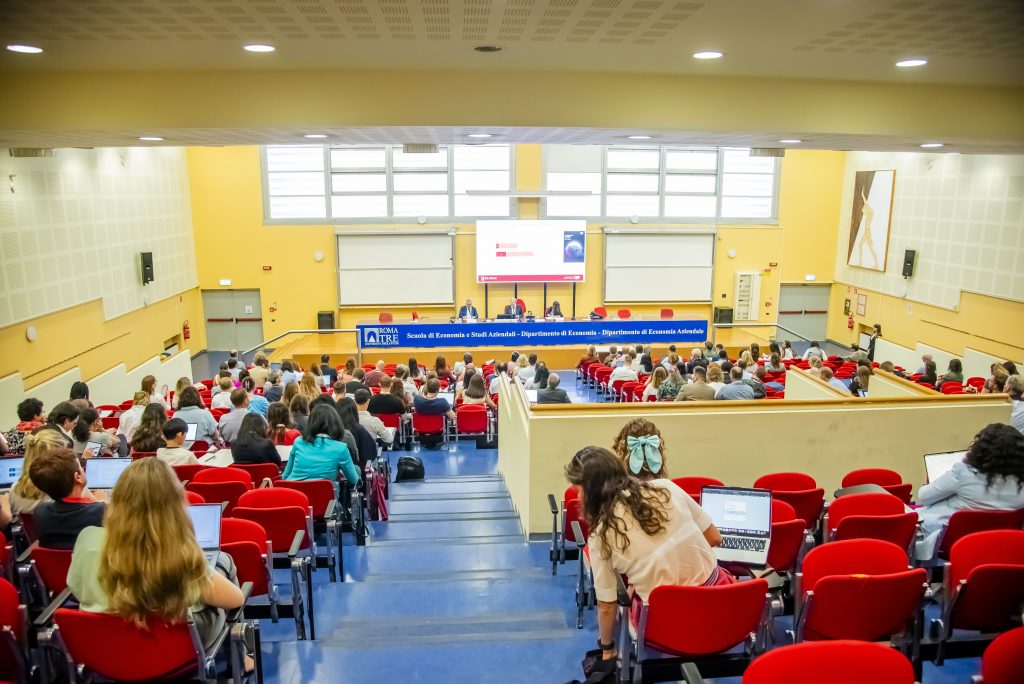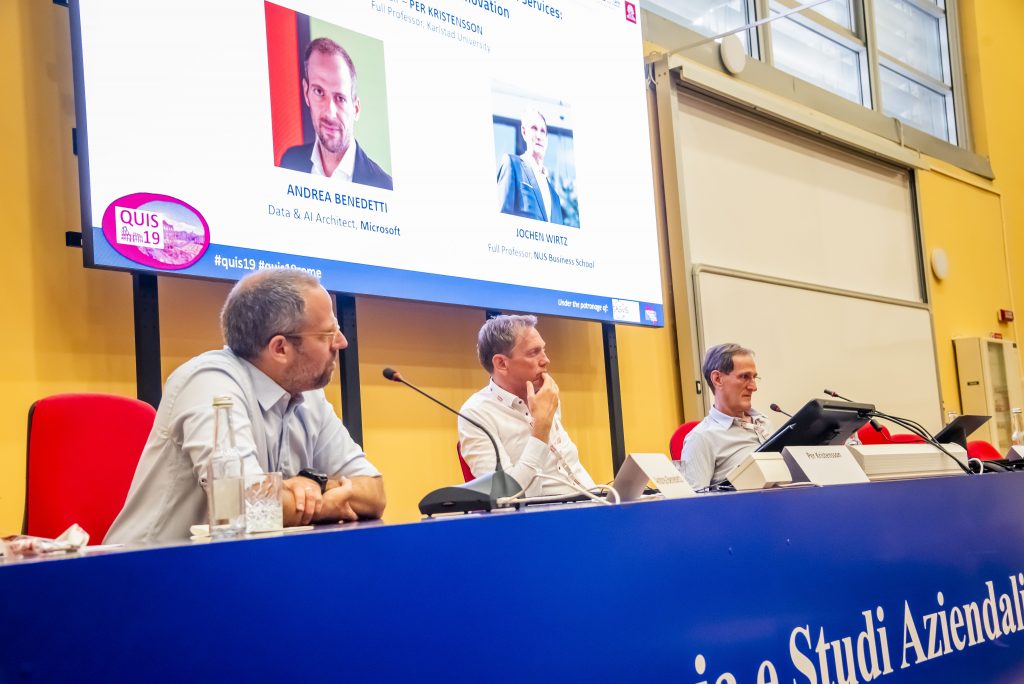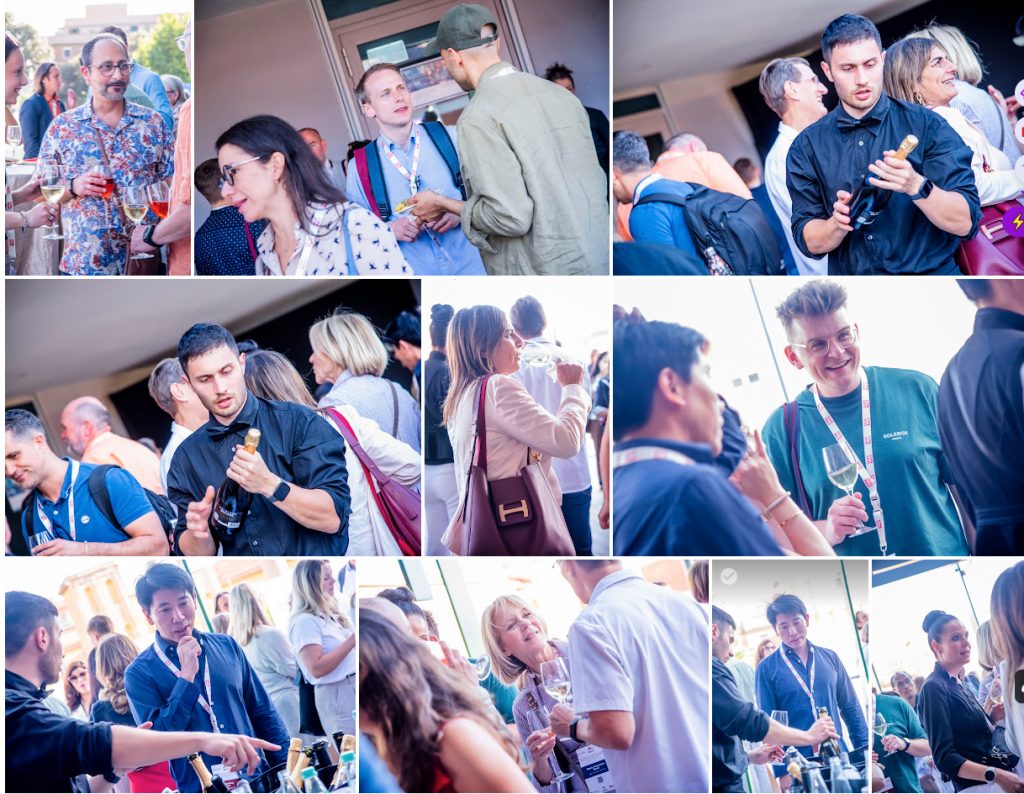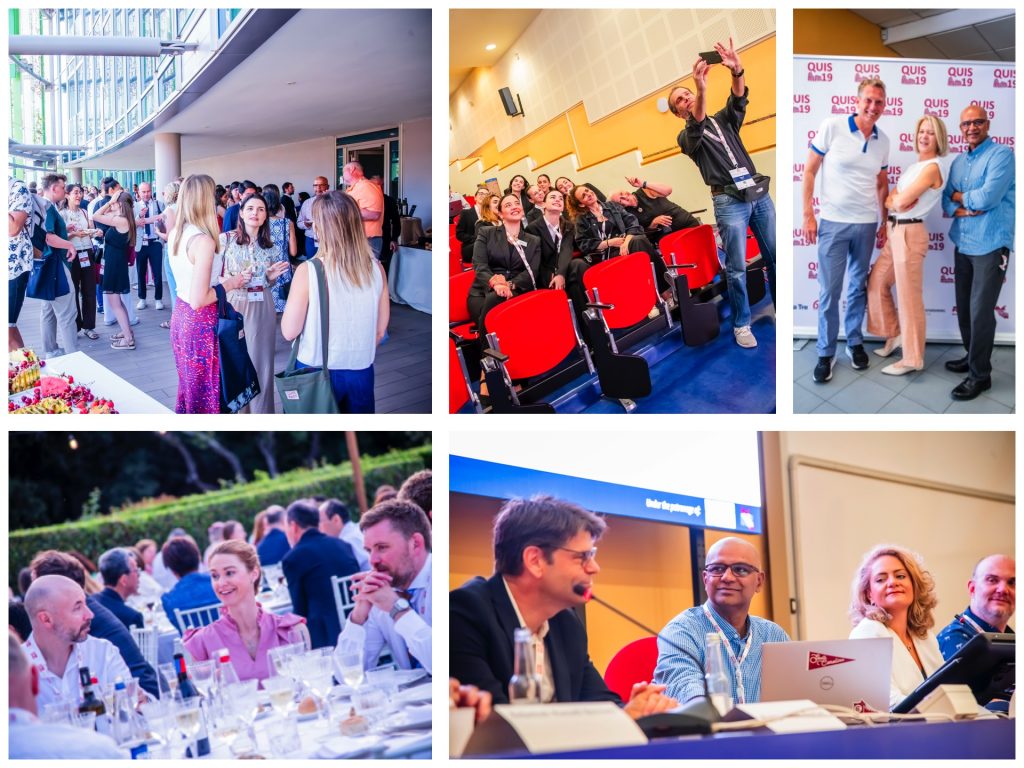Guest Article by Maria Francesca Renzi and Roberta Guglielmetti Mugion, Department of Business Studies, Roma Tre University
The Department of Business Studies at Roma Tre University had the honour of hosting the 19th International Research Symposium on Service Excellence in Management (QUIS19). This year’s central theme, “Service Research and Education: A Path to Digital and Sustainable Transformation”, reflected the growing relevance of these domains. Service research and education are instrumental in shaping digital innovation into responsible, human-centric solutions, capable of driving meaningful and sustainable change.
QUIS19 was a global event, uniting 289 participants from 32 countries in a vibrant exchange of ideas and insights. Spanning four dynamic days, the symposium offered a rich and stimulating program, including 83 concurrent sessions, 5 thematic special sessions, 2 hands-on pre-conference workshops, 4 interactive Meet the Editors panels, and a dedicated Doctoral Consortium designed to support and inspire emerging scholars in the field.

The event was further enriched by the participation of five esteemed academic journals – Journal of Service Management, Journal of Services Marketing, Journal of Service Theory and Practice, Journal of Social Impacts in Business Research, and International Journal of Quality and Service Sciences. Their presence not only enriched the academic discourse but also celebrated scholarly excellence through the presentation of prestigious awards.
Plenary Sessions and Keynotes
The opening plenary, chaired by Laura Di Pietro (Professor, Roma Tre University), focused on how service research can act as a catalyst for transformative change toward sustainability and social impact. Enrico Giovannini (Co-founder and scientific director ASviS, Professor at University of Rome “Tor Vergata”) offered a compelling vision of the systemic transformations needed to achieve the UN SDGs, emphasizing resilience, systems thinking, and the integration of institutional, environmental, and social dimensions. This was followed by an industry perspective from Luca Ruini (Vise president HSE&E, Barilla Group), who highlighted practical strategies for embedding sustainability into service operations and value chains, underlining the vital role of corporate responsibility in shaping future service ecosystems.

The second plenary, moderated by Per Kristensson (Quis19 co-chair and Professor, CTF, Karlstad University), explored the intersection of digital technologies and service transformation. Andrea Benedetti (Senior Cloud Architect, Data & AI Engineer, Microsoft) reflected on the role of Generative AI in shaping more ethical and sustainable digitalization, suggesting its potential to support responsible innovation in service ecosystems. Jochen Wirtz (Professor, NUS Business School) offered perspectives on how AI could augment human capabilities, streamline complex processes, and open pathways to new business models, while also raising important considerations around governance, trust, and collaboration between humans and intelligent systems.

The final plenary session, led by Rohit Verma (Professor, Darla Moore School of Business, USA), brought together editors from leading service journals to reflect on the implications of AI and sustainability for the future of service research. In a dynamic and interactive panel, the editors Linda Alkire and Sertan Kabadayi (Journal of Service Management), Mark S Rosenbaum (Journal of Services Marketing), Florian von Wangenheim (Journal of Service Research) and Rebekah Russell-Bennett (Journal of Social Impact in Business Research) shared emerging trends, key research gaps, and future priorities, while also engaging the audience in discussion. The session fostered rich dialogue and new connections, reinforcing the centrality of academic publishing in advancing the field.

Awards and Social events
The symposium was enriched by three lively social events that offered participants the chance to connect, network, and unwind in a more informal and enjoyable setting. Throughout the Quis19, several awards were presented to recognize academic excellence and impactful contributions. These included honors from the leading journals Journal of Service Management, Journal of Service Theory and Practice, and Journal of Services Marketing. In addition, three early-career researchers received the prestigious Mary Jo Bitner “Rising Star in Services” Award (Larissa Becker, Riley T. Krotz, Veronica Ungaro), while three service scholars were recognized with the Bo Edvardsson “Industry Impact in Services” Award (Cristina Mele, Rebekah Russell-Bennet, Mohamed Zaki). The program also featured three QUIS19 Best Paper Awards and a special award promoted by the Journal of Social Impact in Business Research.
QUIS19 Social Commitment and Impact
QUIS19 at Roma Tre University was a vibrant platform for sharing research, fostering collaboration, and advancing knowledge in the field of service research. Beyond its academic excellence, the symposium also reflected a strong commitment to social responsibility. The conference bags were handmade with upcycled fabrics by women involved with Made in Carcere, a social enterprise that empowers individuals in detention or facing social marginalization by providing them with professional skills, employment, and dignity. Each bag also included honey from a beehive adopted by Quis19 through a collaboration with the startup Beeing, which works to protect pollinators through innovative services and products. Additionally, surplus food from the event was donated to local organizations supporting people in need.
We look forward to the next QUIS20, which will be held at the University of Cambridge in June 2027, and hope to reconnect with colleagues and friends from around the world!
Conference website: https://www.quis19.eu/
you find more photos here.




